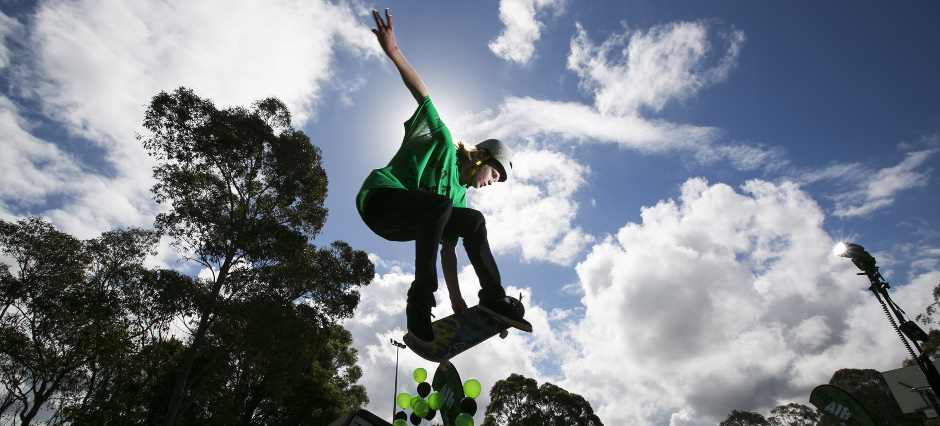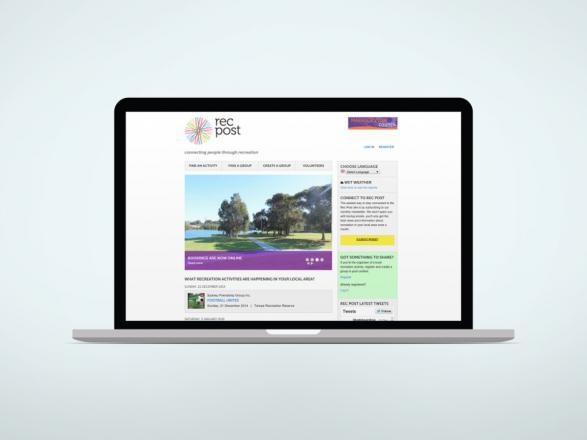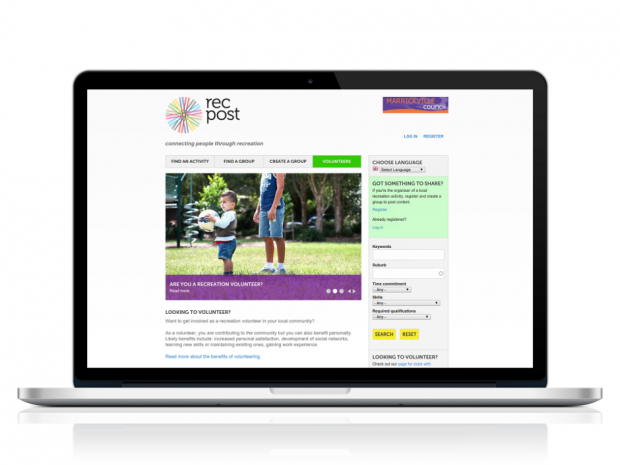 Support for Drupal 7 is ending on 5 January 2025—it’s time to migrate to Drupal 10! Learn about the many benefits of Drupal 10 and find migration tools in our resource center.
Support for Drupal 7 is ending on 5 January 2025—it’s time to migrate to Drupal 10! Learn about the many benefits of Drupal 10 and find migration tools in our resource center.Rec Post is a website for Marrickville Council, in the urbane inner-west of Sydney, Australia, which showcases opportunities for activity in local community sport and recreation. The site allows both Marrickville Council and community recreation groups to post local activities and information for free. The site is unique for local government as it is community-driven: for example, if someone in the area wanted to start a running group, all they would have to do would be to provide a current email address to register and create their group, activities and general information. Other runners could then use the Rec Post site as a community hub, able to search the site by activity, time availability, and even whether the activity is competitive or just social.


Rec Post was based on previous work with Art Post, a site for Marrickville Council community announcements about community arts events in the area. Art Post was built by This Little Duck, and Marrickville Council wanted to build on initial concepts developed for Art Post and tailor an accessible one-stop portal for the recreation sector. A key component of Rec Post was to provide the public with tools for real community engagement.
As such, Drupal was chosen in order to use some of the previous architecture built for Art Post. It was also chosen for its speed and flexibility, to include additional modules for user generation of groups, activities,venues (and later a section dedicated to volunteerism in sport and recreation).
Rec Post was designed to be an online community hub that was flexible, scalable and accessible, usable both for announcements to the community, but also as a platform for engagement. These two aims were interconnected: the more popular the site was, the more useful that it would be for the visibility of Council-run events and opportunities.
From the standpoint of Council, the website would be an efficient and effective way to publish group contact information, information about events, as well as other news and localised information that would appeal directly to the community. They wanted to grow the number of subscribers to a Rec Post newsletter (distributed monthly), as well as appeal to a new demographic that wasn’t typically engaged with Council activities.
However, the council also wanted it to be a useful platform for local groups, as well as to grow the number of contributors that a resource that would encourage volunteers and community engagement. So, from a public user standpoint, it needed to be flexible. Different groups of end users were envisioned: those who simply wanted to browse and search what events were on, those who wanted to subscribe to the Rec Post monthly newsletter or modify their subscription, right up to organisers of events, who wanted to register and publish their group information and subsequent activities and events. Further, the design had to be intuitive for those who had not used many sites like this before.
Discovery and Design
During the discovery and design phase, This Little Duck worked with Neil and Brooke at Marrickville Council Recreation Department to uncover the user stories that would form the requirements of the site. The primary users identified were:
- Staff members from the Council (for example, a Recreation Officer trying to raise awareness of a youth event);
- A volunteer organiser of a community sport/recreation club (for example, someone in the community trying to start a running club);
- Local visitor (for example, someone trying to find out about running clubs in the area).
User Content Model
Based on the user stories from the design process, content was organised into 3 categories: fast content; slow content; and utility content. The difference between the content types informed the content layout, navigation and information architecture for the site:
- Fast content is generated more often and is more timely, it is often the most relevant content for any point of time. Examples of fast content includes news articles, and events like a particular meetup day and time of the running club.
- Slow content is not generated or updated as often as fast content. Examples of slow content include support pages of the site, or the information page for the running club.
- Utility content is only used as necessary, for example with pages such as venue information, and user registration.

Outcome
Rec Post went live in October 2012. Since then, the site has continued to grow in awareness and use: fiin 2014, Rec Post won the Parks and Leisure Australia Regional Award of Excellence for Inclusive and Connected Communities.

At time of writing, there are currently over a thousand newsletter subscribers, over a hundred new groups registered on Rec Post. Further, the data from these members and use of the site is helping Marrickville Council to better understand their users and the community that they’re trying to serve.
“We are definitely seeing the rewards for all the hard work in concept development and design, particularly in general positive community feedback. Rec Post is an innovative project in the local government sector and it has allowed community groups and members to update and find accurate information about a range of recreation programs, services and activities across the local government area. We were proud to be recognised within the industry for innovation and engagement and look forward to working with Drupal on future projects.” - Neil Finlay, Marrickville Council
Technical specifications
Rec Post uses a custom installation profile to organise the project modules, themes and libraries. Using an installation profile was important for a few reasons:
- The client was interested in the possibility of re-using the platform across different parts of their organisation
- The development team wanted a way to introduce testing and continuous integration development workflows as the project grew over the long term
The Drupal implementation used the following key contrib modules:
- Groups and membership: Rules and Entity Reference
- Comment moderation and notifications: Flag and Comment Notify
- Landing pages and search filters: Page manager (part of Ctools), Panels and Views
- Location and mapping: Address Field, Geofield, Geocoder and Leaflet
- Language translation: GTranslate
Rec Post was built by This Little Duck. Concept development and community engagement by Neil Finlay and Brooke Atkins at Marrickville Council. Visual design was completed in collaboration with Melbourne designer Wendy Fox; sitebuilding and application development by Peter Cossey (cossovich); additional theme development by Colin Watson (keyhitman).
